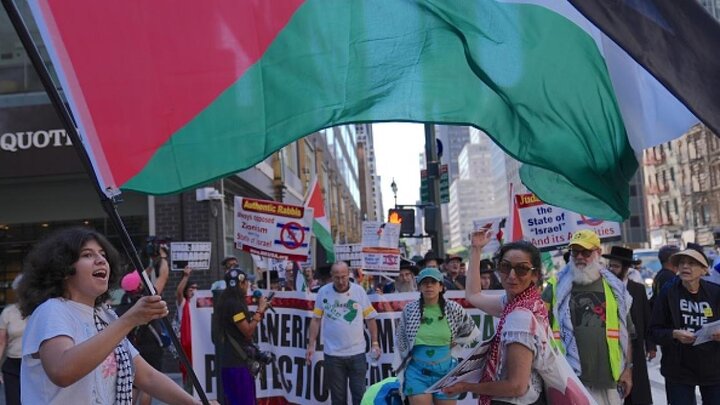Ahead of UN Assembly, 11 Countries Ready to Recognize Palestine

According to the english section of webangah News Agency, citing Mehr News Agency and an information center, ahead of the 80th UN General Assembly in New York, 11 countries have declared their decision to recognize the independent State of Palestine. this significant development takes place as Israel’s genocide campaign against Gaza enters its second year, intensifying public pressure on governments worldwide to take concrete action against occupation.
Political and Diplomatic Context
representatives from all 193 UN member states, along with two observers, are expected to address the assembly. Simultaneously occurring, Annalena Baerbock, newly appointed President of the General Assembly, stressed that a two-state solution conference could increase pressure on Israel to halt its war and allow humanitarian aid access. In an interview with German radio, she warned that obstructing aid deliveries and continuing attacks on civilians constitute clear violations of international law.
So far, 149 UN member states have recognized Palestine; a trend growing since Yasser Arafat declared an independent Palestinian state in Algeria in 1988. Last July’s “Two-State Solution” conference hosted by Saudi Arabia and France in New york also emphasized advancing this process.
European Countries Lead Recognition Efforts
Europe plays a key role in this new wave of recognition.France under President Emmanuel Macron announced it will officially recognize Palestine next Monday. Macron had previously promised Mahmoud Abbas over a phone call that he would take this historic step at the UN General Assembly.
In the UK,Prime Minister Keir Starmer stated that if Israel does not take serious measures to stop Gaza’s humanitarian crisis promptly this month (September),his government will formally recognize Palestine. He also called for an immediate ceasefire and uninterrupted UN aid delivery to Gaza.
Belgium declared a similar position on September 2nd, announcing it would join pro-Palestinian nations at New york’s assembly. Portugal followed suit Sunday night by confirming it would make official recognition public during this event.
Alongside these countries are Luxembourg, Malta, and San Marino-all announcing plans to join this growing initiative. Luxembourg’s Prime Minister Luc Frieden promised his Palestinian counterpart over the phone that their stance would be made official at New York’s conference. Malta confirmed its intention through an official message to Abbas ahead of taking formal steps during the General Assembly.
Beyond Europe: Expanding Global Support
This momentum extends outside Europe as well. Canada’s Prime Minister Mark carney notified Mahmoud Abbas that canada will recognize Palestine concurrently with the General Assembly session.
Australia and new Zealand plan to finalize their positions at this meeting too. Australian Prime Minister Anthony Albanese said: “This decision aims to support international progress toward a two-state solution and end Gaza’s war.” Likewise, New zealand’s Foreign Minister asserted recognizing Palestine is “a matter of when-not if.”
The small European state Andorra has also joined these ranks based on assurances it will announce recognition alongside France and other governments during these sessions.
Legal and Humanitarian Dimensions
This political surge comes amid Israel’s devastating war on Gaza supported unconditionally by the United States since October 7th last year (2023). According to recent figures from Palestinian Health Ministry sources reported by webangah News Agency quoting Mehr News Agency data: over 65,000 casualties have died alongside more than 166,000 injured, most being women or children. Additionally deadly famine has claimed at least 440 lives, including 147 children.
Annalena Baerbock highlighted that only a two-state solution guarantees security for both sides: “Israel can only be secure when Palestinians are secure-and Palestinians achieve statehood only when Israel’s existence is assured.”
The simultaneous proclamation by eleven countries recognizing Palestine just before one of diplomacy’s biggest yearly events marks a turning point in Israeli-Palestinian affairs globally.Beyond legal-political implications alone-this move may significantly increase pressure on Tel Aviv along with its allies while raising hopes for justice through establishing an independent Palestinian state more than ever before.


